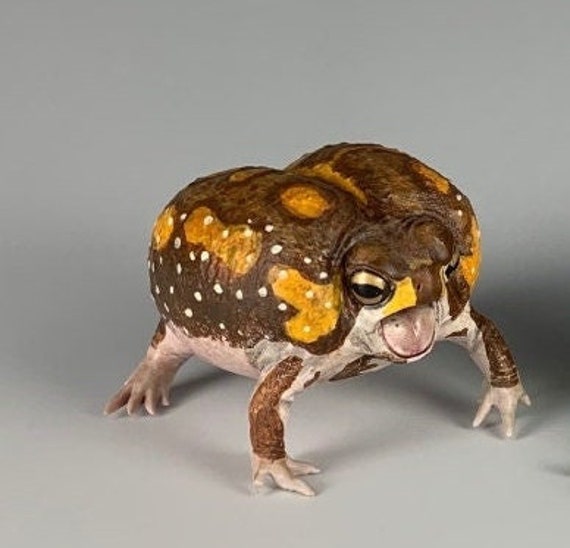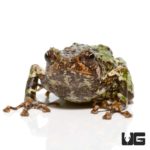Explore Rain Frog for Sale: Boost Your Family Pet Video Game with a Distinct Amphibian Buddy!
Explore Rain Frog for Sale: Boost Your Family Pet Video Game with a Distinct Amphibian Buddy!
Blog Article
Common Health Issues in Reptiles: Signs and Solutions
In the complex world of reptile care, comprehending the typical health concerns that might influence these distinct creatures is paramount in ensuring their health. From breathing infections that can quietly take hold to metabolic bone diseases that can debilitate, reptiles are prone to a variety of conditions that require eager monitoring and prompt treatment. Whether it's facing parasitical invasions, browsing dehydration worries, or dealing with skin conditions that materialize in refined ways, being in harmony with the signs and geared up with the expertise of reliable remedies is necessary for any reptile owner. By delving additionally into the subtleties of these health and wellness issues and checking out the useful treatments available, one can secure the wellness and vitality of these fascinating pets.
Breathing Infections
Respiratory infections in reptiles can considerably impact their general health and wellness and require timely interest from knowledgeable veterinarians. These infections are frequently created by fungi, bacteria, or infections and can manifest with signs such as wheezing, nasal discharge, open-mouth breathing, and lethargy. In reptiles, respiratory system infections can be especially testing to identify and deal with due to their unique makeup and physiology. Vets typically rely upon a combination of physical examinations, analysis imaging, and research laboratory examinations to accurately identify the underlying cause of the infection.
Therapy for respiratory system infections in reptiles typically includes a mix of supportive care, such as maintaining correct humidity levels and temperature level gradients in the unit, along with targeted drug to attend to the details pathogen accountable for the infection. It is vital for reptile proprietors to monitor their pet dogs very closely for any type of indicators of breathing distress and seek vet care at the earliest sign of an issue. With timely treatment and suitable treatment, many reptiles can recover totally from respiratory infections and resume typical tasks.

Metabolic Bone Condition
What elements contribute to the development of Metabolic Bone Illness in reptiles?
Metabolic Bone Condition (MBD) in reptiles is largely caused by a lack of appropriate calcium, phosphorus, and vitamin D3 degrees in their diet. When reptiles do not obtain appropriate calcium, either via their food or proper UVB exposure for vitamin D3 synthesis, they go to a high risk of developing MBD. Reptiles with diet plans reduced in calcium or unbalanced calcium to phosphorus proportions are especially susceptible. Furthermore, poor exposure to UVB light protects against reptiles from manufacturing vitamin D3, which is crucial for calcium absorption and bone wellness.
Inadequate moisture levels can additionally impact a reptile's ability to metabolize calcium efficiently. Normal veterinary examinations, proper husbandry techniques, and a balanced diet plan are essential to protect against Metabolic Bone Illness in reptiles.
Parasitical Infestations
Parasitic problems posture a substantial health and wellness danger to reptiles, impacting their overall health and needing punctual vet attention. Reptiles can be impacted by various bloodsuckers, including termites, ticks, internal worms, and protozoa. These parasites can trigger a series of signs and symptoms, such as weight loss, sleepiness, skin inflammation, looseness of the bowels, and even fatality if left without treatment.
One common bloodsucker located in reptiles is the mite, which can create skin inflammation, stress and anxiety, and anemia. Ticks are an additional external bloodsucker that can cause and transmit illness pain to the reptile. Interior bloodsuckers like worms and protozoa can bring about gastrointestinal issues, lack of nutrition, and weaken the reptile's immune system.
To detect a parasitic problem, a vet might do fecal tests, skin scrapings, or blood tests. Treatment typically includes deworming drugs, antiparasitic baths, or in serious situations, a hospital stay. Preventative actions such as normal vet exams, correct health, and quarantine treatments for brand-new reptiles can aid lessen the danger of parasitical invasions and make sure the wellness of reptile family pets.
Dehydration and Hydration Issues
Dehydration in reptiles can considerably impact their wellness and wellness, necessitating timely intervention and proper hydration management. If left unattended, dehydration can lead to significant health and wellness concerns and even be deadly to the reptile.
To avoid dehydration, reptile owners need to guarantee that their pet dogs have access to tidy water whatsoever times. The water meal should be big enough for the reptile to take in if required, Check Out Your URL particularly for species that soak up water with their skin. Additionally, preserving proper moisture levels in the reptile's room and giving normal bathrooms can assist avoid dehydration.
In cases of dehydration, it is vital to seek vet care without delay. A veterinarian may carry out fluids either by mouth or through injections to rehydrate the reptile. It is crucial to attend to the underlying reason for dehydration to stop reoccurrence and ensure the reptile's total health.
Skin Ailments

Verdict

Breathing infections in reptiles can substantially affect their overall wellness and need timely attention from experienced vets (rain frog for sale). Preventative measures such as normal vet check-ups, correct hygiene, and quarantine procedures for new reptiles can assist reduce the threat of parasitic problems and make certain the wellness of reptile pet dogs
If left without treatment, dehydration can lead to major health problems and also be deadly to the reptile.
Consistently examining your reptile for any kind of modifications in skin texture, shade, or appearance can more tips here assist in early detection and treatment of skin disorders, promoting the general wellness and well-being of your scaly buddy. - rain frog for sale
In conclusion, reptiles are susceptible to different health problems such as respiratory system infections, metabolic bone disease, parasitical infestations, dehydration, and skin conditions.
Report this page